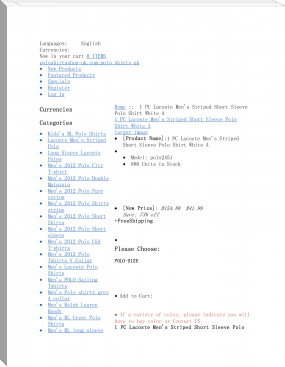The Ghost Kings - H. Rider Haggard (moboreader TXT) 📗

- Author: H. Rider Haggard
Book online «The Ghost Kings - H. Rider Haggard (moboreader TXT) 📗». Author H. Rider Haggard
When the waggon had creaked to the top of the rise, for, of course, there was no road, and the Kaffirs were beginning to unyoke the hungry oxen, Rachel, who was riding with her father, sprang from her horse and ran to it to help her mother to descend. She was now a tall young woman, full of health and vigour, strong and straightly shaped. Mrs. Dove, frail, delicate, grey-haired, placed her foot upon the disselboom and hesitated, for to her the ground seemed far off, and the heels of the cattle very near.
"Jump," said Rachel in her clear, laughing voice, as she smacked the near after-ox to make it turn round, which it did obediently, for all the team knew her. "I'll catch you."
But her mother still hesitated, so thrusting her way between the ox and the front wheel Rachel stretched out her arms and lifted her bodily to the ground.
"How strong you are, my love!" said her mother, with a sort of wondering admiration and a sad little smile; "it seems strange to think that I ever carried you."
"One had need to be in this country, dear," replied Rachel cheerfully. "Come and walk a little way, you must be stiff with sitting in that horrid waggon," and she led her quite to the top of the knoll. "There," she added, "isn't the view lovely? I never saw such a pretty place in all Africa. And oh! look at those buck, and yes--that is a rhinoceros. I hope it won't charge us."
Mrs. Dove obeyed, gazing first at the glorious sea, then at the plain and the trees, and lastly behind her at the towering cliff steeped in shadow--for the sun was westering--down the face of which the waterfall seemed to hang like a silver rope.
As her eyes fell upon this cliff Mrs. Dove's face changed.
"I know this spot," she said in a hurried voice. "I have seen it before."
"Nonsense, mother," answered Rachel. "We have never trekked here, so how could you?"
"I can't say, love, but I have. I remember that cliff and the waterfall; yes, and those three trees, and the buck standing under them."
"One often feels like that, about having seen places, I mean, mother, but of course it is all nonsense, because it is impossible, unless one dreams of them first."
"Yes, love, unless one dreams. Well, I think that I must have dreamt. What was the dream now? Rachel weeping--Rachel weeping--my love, I think that we are going to live here, and I think--I think----"
"All right," broke in her daughter quickly, with a shade of anxiety in her voice as though she did not wish to learn what her mother thought. "I don't mind, I am sure. I don't want to go to Zululand, and see this horrid Dingaan, who is always killing people, and I am quite sure that father would never convert him, the wicked monster. It is like the Garden of Eden, isn't it, with the sea thrown in. There are all the animals, and that green tree with the fruit on it might be the Tree of Life, and--oh, my goodness, there is Adam!"
Mrs. Dove followed the line of her daughter's outstretched hand, and perceived three or four hundred yards away, as in that sparkling atmosphere it was easy to do, a white man apparently clad in skins. He was engaged in crawling up a little rise of ground with the obvious intention of shooting at some blesbuck which stood in a hollow beyond with quaggas and other animals, while behind him was a mounted Kaffir who held his master's horse.
"I see," said Mrs. Dove, mildly interested. "But he looks more like Robinson Crusoe without his umbrella. Adam did not kill the animals in the Garden, my dear."
"He must have lived on something besides forbidden apples," remarked Rachel, "unless perhaps he was a vegetarian as father wants to be. There--he has fired!"
As she spoke a cloud of smoke arose above the man, and presently the loud report of a roer reached their ears. One of the buck rolled over and lay struggling on the ground, while the rest, together with many others at a distance, turned and galloped off this way and that, frightened by this new and terrible noise. The old rhinoceros under the tree rose snorting, sniffed the air, then thundered away up wind towards the man, its pig-like tail held straight above its back.
"Adam has spoilt our Eden; I hope the rhinoceros will catch him," said Rachel viciously. "Look, he has seen it and is running to his horse."
Rachel was right. Adam--or whatever his name might be--was running with remarkable swiftness. Reaching the horse just as the rhinoceros appeared within forty yards of him, he bounded to the saddle, and with his servant galloped off to the right. The rhinoceros came to a standstill for a few moments as though it were wondering whether it dared attack these strange creatures, then making up its mind in the negative, rushed on and vanished. When it was gone, the white man and the Kaffir, who had pulled up their horses at a distance, returned to the fallen buck, cut its throat, and lifted it on to the Kaffir's horse, then rode slowly towards the waggon.
"They are coming to call," said Rachel. "How should one receive a gentleman in skins?"
Apparently some misgivings as to the effect that might be produced by his appearance occurred to the hunter. At any rate, he looked first at the two white women standing on the brow, and next at his own peculiar attire, which appeared to consist chiefly of the pelt of a lion, plus a very striking pair of trousers manufactured from the hide of a zebra, and halted about sixty yards away, staring at them. Rachel, whose sight was exceedingly keen, could see his face well, for the light of the setting sun fell on it, and he wore no head covering. It was a dark, handsome face of a man about thirty-five years of age, with strongly-marked features, black eyes and beard, and long black hair that fell down on to his shoulders. They gazed at each other for a while, then the man turned to his after-rider, gave him an order in a clear, strong voice, and rode away inland. The after-rider, on the contrary, directed his horse up the rise until he was within a few yards of them, then sprang to the ground and saluted.
"What is it?" asked Rachel in Zulu, a language which she now spoke perfectly.
"Inkosikaas" (that is--Lady), answered the man, "my master thinks that you may be hungry and sends you a present of this buck," and, as he spoke, he loosed the riem or hide rope by which it was fastened behind his saddle, and let the animal fall to the ground.
Rachel turned her eyes from it, for it was covered with blood, and unpleasant to look at, then replied:
"My father and my mother thank your master. How is he named, and where does he dwell?"
"Lady, among us black people he is named Ibubesi (lion), but his white name is Hishmel."
"Hishmel, Hishmel?" said Rachel. "Oh! I know, he means Ishmael. There, mother, I told you he was something biblical, and of course Ishmael dwelt in the wilderness, didn't he, after his father had behaved so badly to poor Hagar, and was a wild man whose hand was against every man's."
"Rachel, Rachel," said her mother suppressing a little smile. "Your father would be very angry if he heard you. You should not speak lightly of holy persons."
"Well, mother, Abraham may have been a holy person, but we should think him a mean old thing nowadays, almost as mean as Sarah. You know they were most of them mean, so what is the use of pretending they were not?"
Then without waiting for an answer she asked the Kaffir again: "Where does the Inkoos Ishmael dwell?"
"In the wilderness," answered the man appropriately. "Now his kraal is yonder, two hours' ride away. It is called Mafooti," and he pointed over the top of the precipice, adding: "he is a hunter and trades with the Zulus."
"Is he Dutch?" asked Rachel, whose curiosity was excited.
The Kaffir shook his head. "No, he hates the Dutch; he is of the people of George."
"The people of George? Why, he must mean a subject of King George--an Englishman."
"Yes, yes, Lady, an Englishman, like you," and he grinned at her. "Have you any message for the Inkoos Hishmel?"
"Yes. Say to the Inkoos Ishmael or Lion-who-dwells-in-the-wilderness, hates the Dutch and wears zebra-skin trousers, that my father and my mother thank him very much for his present, and hope that his health is good. Go. That is all."
The man grinned again, suspecting a joke, for the Zulus have a sense of humour, then repeated the message word for word, trying to pronounce Ishmael as Rachel did, saluted, mounted his horse, and galloped off after his master.
"Perhaps you should have kept that Kaffir until your father came," suggested Mrs. Dove doubtfully.
"What was the good?" said Rachel. "He would only have asked Mr. Ishmael to call in order that he might find out his religious opinions, and I don't want to see any more of the man."
"Why not, Rachel?"
"Because I don't like him, mother. I think he is worse than any of the rest down there, too bad to stop among them probably, and--" she added with conviction, "I think we shall have more of his company than we want before all is done. Oh! it is no good to say that I am prejudiced--I do, and what is more, he came into our Garden of Eden and shot the buck. I hope he will meet that rhinoceros on the way home. There!"
Although she disapproved, or tried to think that she did, of such strong opinions so strongly expressed, Mrs. Dove offered no further opposition to them. The fact was that her daughter's bodily and mental vigour overshadowed her, as they did her husband also. Indeed, it seemed curious that this girl, so powerful in body and in mind, should have sprung from such a pair, a wrong-headed, narrow-viewed saint whose right place in the world would have been in a cell in the monastery or one of the stricter orders, and a gentle, uncomplaining, high-bred woman with a mind distinguished by its affectionate and mystical nature, a mind so unusual and refined that it seemed to be, and in truth was, open to influences whereof, mercifully enough, the majority of us never feel the subtle, secret power.
Of her father there was absolutely no trace in Rachel, except a certain physical resemblance--so far as he was concerned she must have thrown back to some earlier progenitor. Even their intellects and moral outlook were quite different. She had, it is true, something of his scholarly power; thus, notwithstanding her wild upbringing, as has been said, she could read the Greek Testament almost as well as he could, or even Homer,





Comments (0)